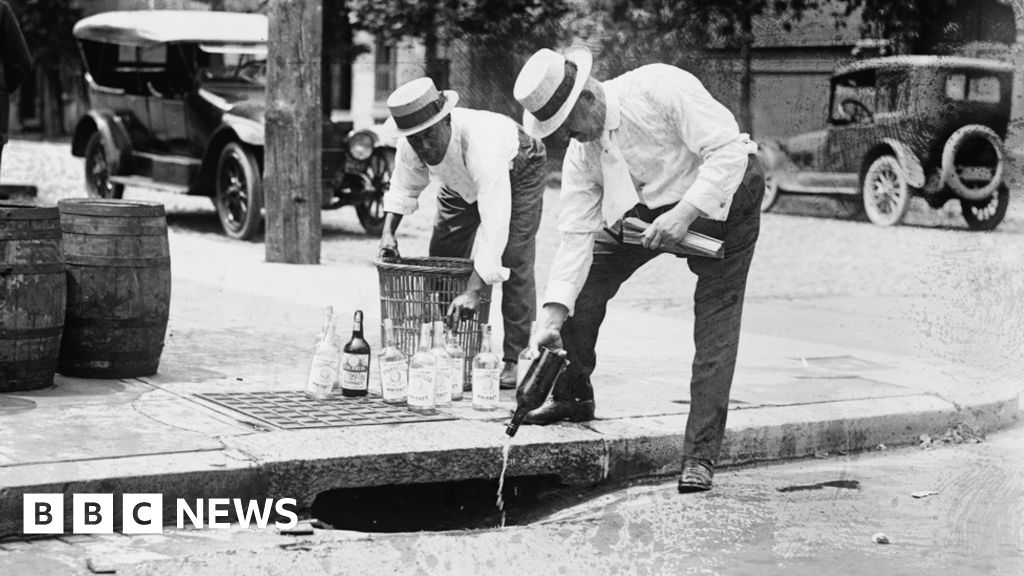
Irving Fisher
| Use attributes for filter ! | |
| Gender | Male |
|---|---|
| Death | 77 years ago |
| Date of birth | February 27,1867 |
| Zodiac sign | Pisces |
| Born | Saugerties |
| New York | |
| United States | |
| Date of died | April 29,1947 |
| Died | New York |
| New York | |
| United States | |
| Spouse | Margaret Hazard |
| Children | Margaret Fisher |
| Job | Economist |
| Professor | |
| Statistician | |
| Education | MICDS (Mary Institute and Saint Louis Country Day School) |
| Yale University | |
| Interests | Economics |
| Parents | George Whitefield Fisher |
| Awards | Josiah Willard Gibbs Lectureship |
| Influencees | Milton Friedman |
| Franco Modigliani | |
| James Tobin | |
| Publications | scholar.google.com |
| Date of Reg. | |
| Date of Upd. | |
| ID | 476392 |
The Nature of Capital and Income
The Debt- Deflation Theory of Great Depressions
100% money
Mathematical Investigations in the Theory of Value and Prices
Elementary principles of economics
Appreciation and interest
Stabilizing the dollar
100% Money and the Public Debt
How to Live: Rules for Healthful Living Based on Modern Science
Stable money
The Making of Index Numbers: A Study of Their Varieties, Tests, and Reliability
Precedents for Defining Capital
A Brief Introduction To The Infinitesimal Calculus
Why is the dollar shrinking?
Will the Present Upward Trend of World Prices Continue?
Suggested Problems for Teachers for Use with Elementary Principles of Economics
The noble Experiment,
Constructive income taxation
Inroduction to Economic Science
How to Invest when Prices are Rising: A Scientific Method of Providing for the Increasing Cost of Living
The Effect of Diet on Endurance
A Bibliography of the Writings of Irving Fisher
Ten Economic Studies in the Tradition of Irving Fisher
Health for the soldier and sailor
The Impatience Theory of Interest; A Study of the Causes Determining the Rate of Interest . . .
A report on national vitality, its wastes and conservation
How to Live
Miscellaneous Writings
America's interest in world peace
Economic aspect of lengthening human life
Booms and Depressions and Related Writings
Mathematical Investigations in the Theory of Value and Price, 1892: Appreciation and Interest, 1896
On Money Banking and National Debt Redemption: 80th Anniversary Edition of Fishers 100% Money and the Chicago Plan
How to Live (Illustrated Edition) (Dodo Press)
The money illusion and related writings
Eugenics: Applied Eugenics Introduced to the American Nation by a Leading Member of the Movement (Hardcover)
After Reflation, What?
100% Money: Designed to Keep Checking Banks 100% Liquid - To Prevent Inflation and Deflation - Largely to Cure Or Prevent Depression - And to Wipe Out Much of the National Debt
How to Live Long
Inflation?
Eugenics
How to Live: Rules for Healthful Living Based on Modern Science: Authorized by and Prepared in Collaboration with the Hygiene Reference Board of the Life Extension Institute, Inc. - Scholar's Choice Edition
Stabilizing the Dollar (1920) by: Irving Fisher / Ex-President of the American Economic Association
The Early Professional Works
Correspondence and Other Commentary on Economic Policy 1930-1947
Elementary Principles of Economics - Scholar's Choice Edition
The Theory of Interest
The rate of interest
The theory of interest as determined by impatience to spend income and opportunity to invest it
The Money Illusion
The purchasing power of money
The Debt-Deflation Theory of Great Depressions
Irving Fisher Life story
Irving Fisher was an American economist, statistician, inventor, eugenicist and progressive social campaigner. He was one of the earliest American neoclassical economists, though his later work on debt deflation has been embraced by the post-Keynesian school.
News Daily: Brexit bill paused and blood pressure pills 'best at bedtime'

... Perhaps some of the blame for this lies with the man who, a century ago, was probably the most famous economist in the world - Irving Fisher...
What prohibition's failure means for the legalisation of cannabis

... Perhaps some of the blame for this lies with the man who, a century ago, was probably the most famous economist in the world - Irving Fisher...
What prohibition's failure means for the legalisation of cannabis
Prohibition aimed to outlaw the manufacture and sale of alcohol across the US
Economists have a bit of an image problem. People think we shamelessly massage statistics, overconfidently make terrible predictions, and are no fun at drinks parties.
Perhaps some of the blame for this lies with The Man who, a century ago, was probably The Most famous economist in The World - Irving Fisher .
It was Fisher who notoriously claimed, in October 1929, the stock market had reached "a permanently high plateau".
Nine Days later, came the huge stock market crash that led to the Great Depression.
As for parties, The Best that can be said for Fisher was he was a generous host.
As Mark Thornton records in The Economics of Prohibition , One of Fisher's dinner guests wrote: "While I ate right through my succession of delicious courses, [Fisher] dined on a vegetable and a raw Egg . "
A fitness fanatic, he avoided meat, tea, coffee and chocolate.
He didn't Drink alcohol either, and was an enthusiastic supporter of Prohibition , America's ill-fated attempt to outlaw its manufacture and sale, which began in 1920.
It was a remarkable change - the country's fifth-largest industry was suddenly made illegal.
Fisher predicted it would "go down in history as ushering in a new era in The World , in which accomplishment this nation will take pride forever".
He added he couldn't find a single economist willing to oppose the policy in a debate.
In fact, Prohibition turned out about as well as his prediction about the permanently high plateau: historians typically regard it as a farce.
It was so widely flouted alcohol consumption decreased by only about a fifth. It finally ended in 1933, when One of Franklin D Roosevelt's first acts as president was to re-legalise beer, bringing cheering crowds to the White House gates.
The Roots of Prohibition are generally traced to religion, perhaps laced with class-based snobbery.
But economists had another concern: productivity.
Wouldn't sober nations outcompete those with a workforce of Drunks ?
highlights the inventions, ideas and innovations that helped create the economic world.
It is broadcast on the BBC World Service. You can find and or.
Fisher certainly seems to have happily taken some liberties with figures. He claimed, for example, Prohibition was worth $6bn to America's economy.
Was this figure the result of careful study? Not according to One bemused critic.
Evidently Fisher started with reports from a few individuals a stiff Drink on an empty stomach made them 2% less efficient.
He then assumed workers habitually downed five stiff drinks just before work, so multiplied the two by five and concluded alcohol lopped 10% off production.
Dubious, to say the least.
Economists might have been less surprised by the failure of Prohibition if they'd been able to fast-forward half a century to economist Gary Becker 's Nobel Prize-winning insights on "rational crime".
Becker said making something illegal simply added another cost rational people would weigh up alongside other costs and benefits - The Penalty if You 're Caught , modulated by the probability of being Caught .
Gary Becker was awarded the 2008 Presidential Medal of Freedom for his workHe meant it, too: "I don't think they check that carefully," he told me, cheerfully admitting he had committed a rational crime.
"Rational criminals," said Becker, "will supply prohibited goods at The Right price. "
Whether consumers will pay that price depends on what economists call elasticity of demand.
Imagine, for example, the government bans broccoli. Would "black marketeers" grow broccoli in secluded back gardens and sell it down dark alleys for an inflated price?
It's unlikely, because demand for broccoli is elastic - Hike The Price and most of us will buy cauliflower or cabbage instead.
With alcohol, it turns out, demand is inelastic: raise The Price and many will still pay it.
Prohibition was a boon for rational criminals such as Al Capone , who defended his bootlegging in entrepreneurial terms.
"I give The Public what The Public wants," he said. "I never had to send out high-pressure salesmen. I could never meet the demand. "
Al Capone was eventually convicted of Tax Evasion , in 1931Black markets change incentives in other ways.
Your competitors can't take You to court, so Why Not use whatever means necessary to establish a local monopoly? The widespread belief mob violence spiked after Prohibition certainly contributed to calls for its repeal.
Every shipment of illegal goods carries some risk, so Why Not save space by making your product more potent? During Prohibition , consumption of beer declined relative to spirits; when it ended, that reversed.
And Why Not cut costs by lowering quality? If You 're making "Moonshine " - Strong , illegal Drink - You don't have to list your ingredients on the label.
More things that made the modern economy:America wasn't the only country to try Prohibition - others included Iceland, Finland and the Faroe Islands - But nowadays nations that strictly ban alcohol tend to be Islamic.
Others have partial restrictions. In the Philippines, for instance, You can't buy alcohol on Election Day , or in Thailand on Buddhist Holidays - except at The Airport duty-free. America still has some "dry" counties, and local "blue laws", which ban sales on Sundays.
Those laws inspired.
The idea is regulations are often supported by a surprising alliance of noble-minded moralists and profit-driven cynics.
Think about bans on cannabis. Who supports them?
The use of cannabis has been decriminalised in many jurisdictions, along with anyone else with an economic interest in anti-drugs laws, such as the bureaucrats paid to enforce them.
In recent years, that alliance has weakened: cannabis has been legalised or decriminalised from California to Canada, from Austria to Uruguay.
Debates in other countries are raging: if You 're going to impose costs on cannabis producers, should You do that by trying to enforce laws against selling cannabis, or by Making It legal and imposing a tax?
In the UK,
It reckons a 30% tax would almost eradicate The Black market, raise about £700m - almost $1bn - for the government, and lead to safer drugs too, just as the end of Prohibition led to safer alcoholic drinks.
Today, You 'd have no trouble finding economists to oppose the Prohibition of cannabis: at least, arguing instead for "evidence-based policies underpinned by rigorous economic analysis".
Naturally, that evidence covers productivity. Some studies find cannabis impairs function; others find no effect.
.
One wonders what Irving Fisher would have made of that.
The author writes the Financial Times's Undercover Economist column. is broadcast on the BBC World Service. You can find and or.
drug legalisation, alcohol
Source of news: bbc.com






















